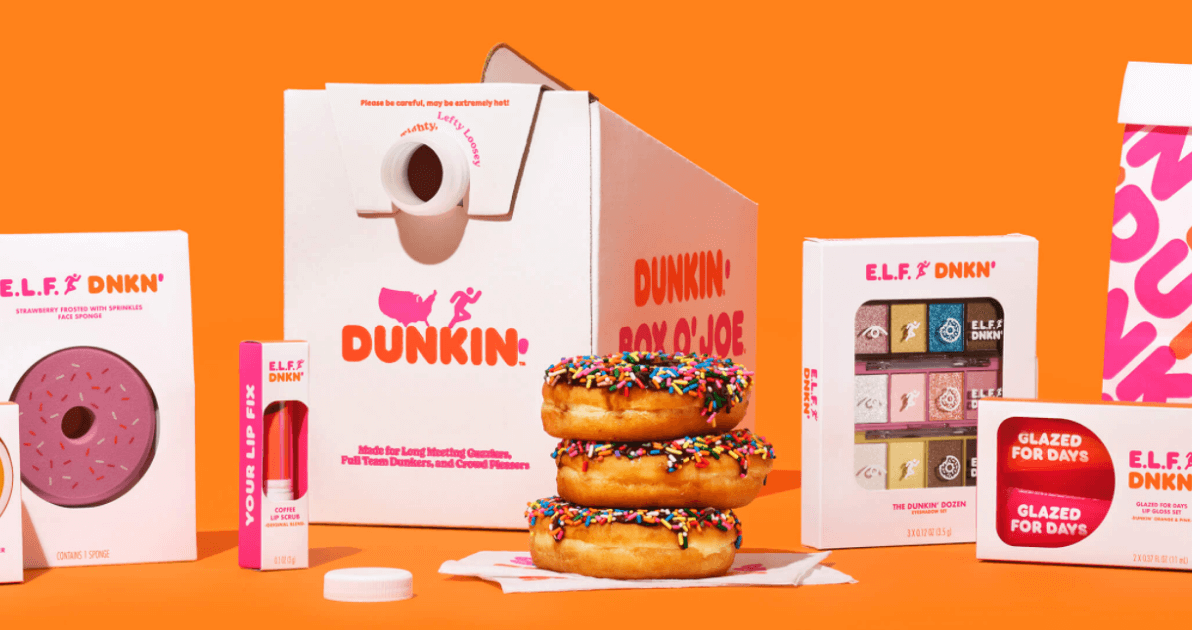Restaurant Brand Licensing Deals Heat Up

Amid heightened competition for consumer attention, restaurants are adding items like the metaverse, cosmetics, and all forms of footwear and apparel to the licensing menu.
Restaurant brands have long been candidates for food licensing as consumers look to take the experience of dining out into their homes, and it’s hard to forget offerings like the Kentucky Fried Chicken Yule logs or the Taco Bell hotel. But with social media doubling as a marketing device, licensing for these brands is taking on new forms.
In recent weeks, there’s been a steady stream of deals that take these restaurants into the virtual world. As evidence of the growing importance of virtual worlds, Burger King and McDonald’s have filed trademark applications for the metaverse.
Wendy’s International, as part of a licensing agreement with Meta (Facebook), launched the Wendyverse on April 2 inside Meta’s Horizon World. Consumers owning Meta Quest 2 virtual reality headsets can enter a virtual restaurant as well as the Buck BiscuitDome, where they can shoot baskets with a virtual Baconator and find hidden prizes—including free food.
“The metaverse can help build closer connections and the challenge is trying to figure out exactly how that will happen,” said James Bennett, VP of Marketing at Wendy’s.
Not to be outdone, Chipotle Mexican Grille on Monday announced a second venture (their first promotion launched (last October) inside Roblox’s metaverse, this time with a crossover between the virtual and in-person worlds. The chain is launching the Chipotle Burrito Builder on Roblox today (April 7) with a National Burrito Day promotion. As part of the promotion, the first 100,000 Roblox players who successfully roll a burrito can exchange virtual currency for a real-life entrée available through the chain’s app or website.
“It’s a cultural conversation and it’s all about social. These are not money-making ventures and they most likely are losing money,” said Brand Central CEO Ross Misher, whose firm has represented Sonic Drive-In. “It’s all about the more unexpected the better, and it’s a way to feed—in a pretty inexpensive marketing way—those conversation drivers that are more important than ever.”
This type of boundary-stretching licensing isn’t limited to virtual worlds, however. For example, Dunkin—whose licensing agreements have stretched from the standard-issue ready-to-drink (with Coca-Cola Co.) and ground coffee (J.M. Smucker Co.) to a partnership with TikTok star Charli D’Amelio—recently launched a five-piece limited-edition cosmetics collection with e.l.f. Cosmetics. The collection is being sold online through e.l.f. and Ulta Beauty, and includes lip gloss and scrub, eye shadow, a donut-shaped face sponge, and putty primer.
Subway, meanwhile, recently made its first major push into licensing by signing agreements with four licensees. Those pacts built on its first effort two years ago with Fila in Asia that featured apparel and footwear. And KFC licensed artwork, in the early days of the pandemic, from the UK’s The National Gallery for limited-edition chicken and drink containers for its stores in Asia.
“These are all about a broader engagement with customers, but also protecting the brands,” said Bill Cross, SVP Business Development at Broad Street Licensing Group. This is especially important considering the rise of online DIY platforms has resulted in an explosion of knock-offs and rip-offs in addition to genuine fan appreciation, Cross said. “It’s [a matter of] control it, or lose it.”




